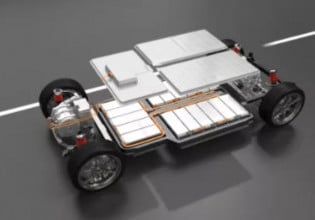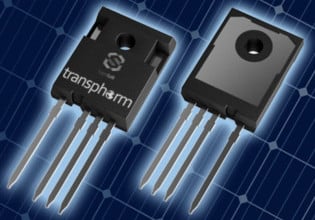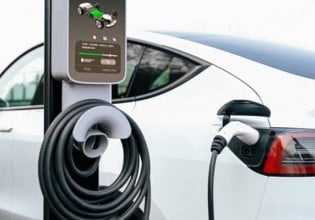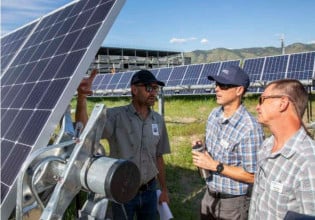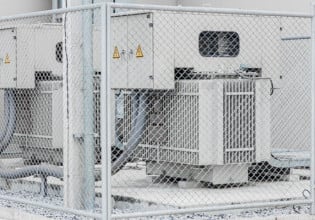NSF Funds University Program to Overcome EV Range and Charging Limitations
Utah State University has secured a $26 million grant from the NSF to establish an electric transportation research facility.
The U.S. National Science Foundation recently awarded Utah State University a $25 million grant to establish the ASPIRE research center, short for Advancing Sustainability through Powered Infrastructure for Roadway Electrification. The program aims to create innovative solutions to overcome EV range and charging limitations, which impede widespread EV adoption.
Image courtesy of Utah State University.
More specifically, ASPIRE researchers will build wireless and plug-in charging infrastructure that can be integrated into roadways and parking areas. Researchers will also develop an Electric Vehicle and Roadway Test Track along with city and intercity simulator software.
The NSF award abstract states that the research would result in “smaller and longer-lasting batteries on vehicles, effectively unlimited EV range, and a ubiquitous charging experience.”
Image courtesy of Utah State University
The grant, announced on August 4, is part of the NSF’s Engineering Research Center program, part of the division of Engineering Education and Centers. ASPIRE was one of four university-run research centers across the U.S. to be awarded five-year grants totaling $104 million.
While the NSF provided $26 million in initial funding to USU, the grant can be renewed in 2025 for a total of $50.6 million over 10 years. USU anticipates that the program will raise more than $200 million in government and industry support in the next 10 years as it works to improve air quality and fuel economic growth in Utah.
“Now is the time to move past century-old mindsets and rethink how roadways and electric grid infrastructure can be co-designed to support low-cost, sustainable solutions for vehicle electrification and decarbonization of the electric grid,” said USU Professor and ASPIRE center director Regan Zane.
ASPIRE involves more than 20 private industry partners, including Ford, Toyota, Fiat Chrysler Automobiles and other major automakers, as well as utility giants Duke Energy and Rocky Mountain Power. Several nonprofits, national laboratories, departments of transportation and other government entities across multiple states are also partners on the project.
Additionally, ASPIRE will operate through strategic partnerships with Purdue University, University of Colorado, University of Texas at El Paso and the University of Auckland New Zealand.
ASPIRE is the latest development in USU’s continued effort to promote research on sustainability and electrification. The State of Utah recently allocated $3 million to expand the university’s Center for Sustainable Electrified Transportation. In 2015, the university opened a 4,800-square-foot solar-powered track to test wireless charging technologies that work while a vehicle is in motion.


